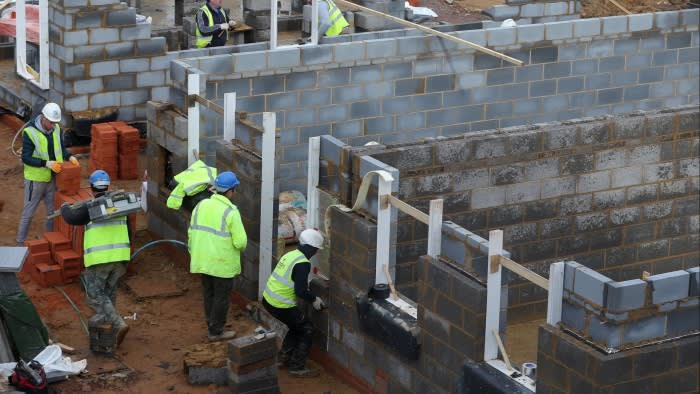Unlock the Editor’s Digest for free
Roula Khalaf, Editor of the FT, selects her favourite stories in this weekly newsletter.
UK chancellor Rachel Reeves has announced plans to raise rents for social housing by more than inflation over the next five or 10 years while also providing an immediate £500mn cash injection for housing associations and councils to boost affordable home building.
Reeves intends to introduce a formula in next week’s Budget that will increase annual rents in England by the consumer price index measure of inflation — currently 1.7 per cent — plus an additional 1 per cent.
The chancellor will issue a consultation in Wednesday’s fiscal setpiece looking at introducing this as a long-term settlement. The Treasury said it would be looking at a five-year CPI+1 deal, but added: “The consultation will also seek views on other potential options to give greater certainty, such as providing a 10-year settlement.”
The move is designed to stimulate the building of more affordable homes by providing certainty over cash flow for heavily indebted housing associations and councils. The government sets rent levels in subsidised social housing on the basis of a national formula.
At the same time Reeves will announce an additional £500mn for the Affordable Homes Programme, an existing £11.5bn five-year scheme allocating money to housing authorities and councils to build new homes.
Angela Rayner, the deputy prime minister who is also secretary of state for housing, had held out during intense spending-round negotiations with the chancellor early this month to garner more money for the AHP.
Reeves also said she would use the spending review to set out the details of new investment for affordable housing for when the existing programme runs out in 2026.
“We need to fix the housing crisis in this country. It’s created a generation locked out of the property market, torn apart communities and put the brakes on economic growth,” she said.
In recent years local authorities have delivered only a trickle of new homes, leaving housing associations — not-for-profit organisations — to build most new social housing.
Guaranteeing higher rents will please housing associations but could prompt a backlash from millions of tenants while landing the government with a much higher benefits bill.
A previous Conservative administration made a similar promise in 2012 with a decade-long rent settlement based on the retail price index plus 0.5 per cent, but this was ripped up in 2015 to save money on housing benefits. A similar five-year deal in 2020 was temporarily dropped when inflation spiked in 2022.
Guaranteeing certainty on rents was a critical demand of 20 of the UK’s largest local council landlords who published a report this summer warning that England’s council housing system was “broken”.
The chancellor will also confirm plans to cut discounts on “right-to-buy” deals — where tenants buy a council property they have been renting. At the same time councils will be able to retain 100 per cent of the receipts generated by such sales.
Ministers hope the net effect will be for local authorities to receive more money to build social housing while still allowing long-standing tenants to buy their own homes.
Polly Neate, chief executive of housing charity Shelter, said the funding boost was a welcome step given Britain’s “rocketing homelessness”.
“For decades we’ve lost more social homes than we’ve built, causing private rents to soar to record highs and the homeless accommodation bill to hit the billions,” she said.
Source link









